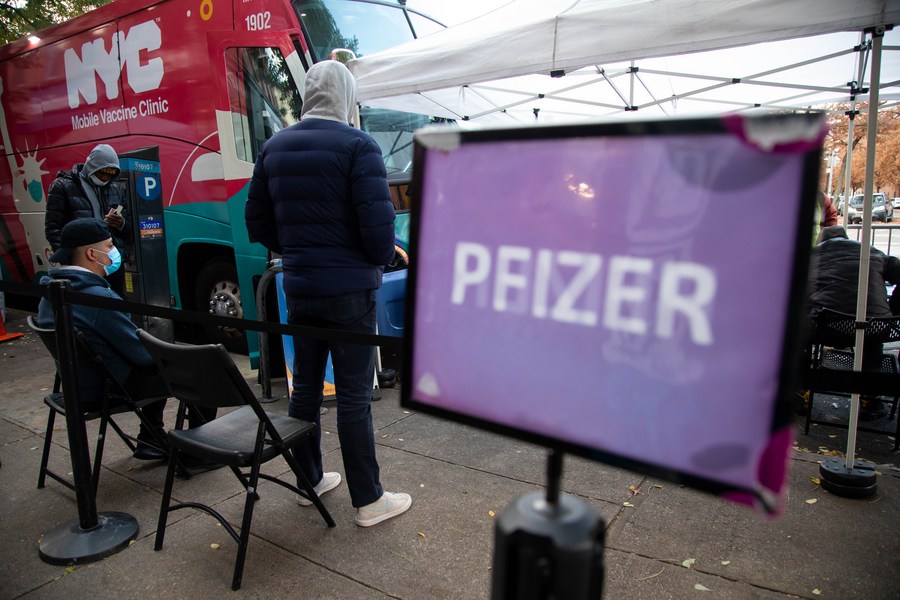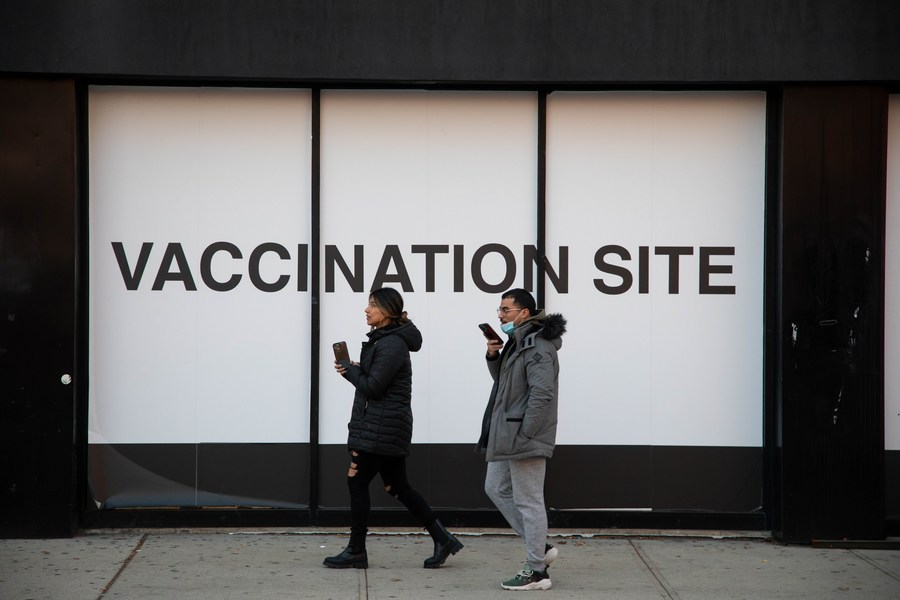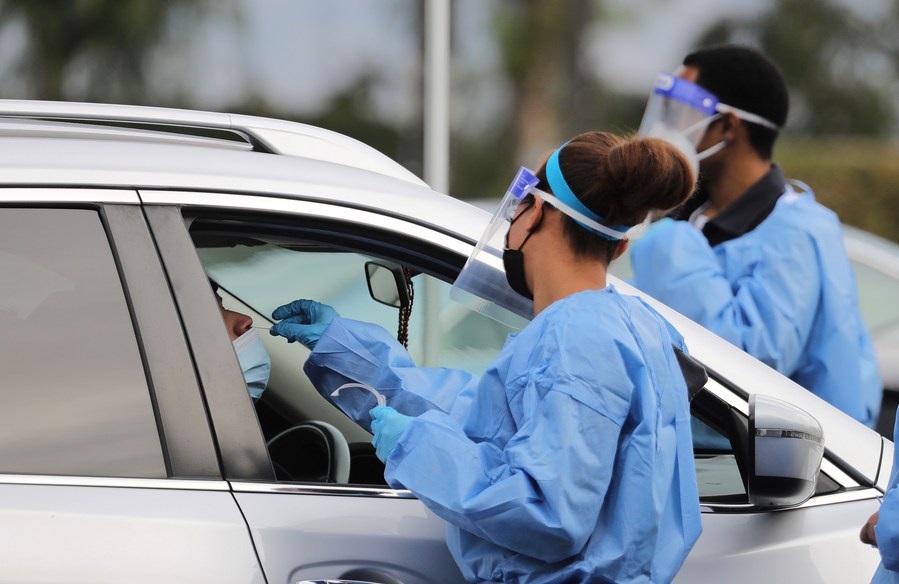
People wait at a mobile COVID-19 vaccination site in the Brooklyn borough of New York, the United States, Nov. 19, 2021. (Photo by Michael Nagle/Xinhua)
-- A Pfizer spokesperson told CNN the company has already begun to manufacture the Omicron-specific vaccine.
-- Moderna plans to seek authorization from the U.S. Food and Drug Administration for its Omicron-specific COVID-19 vaccine booster by the summer.
WASHINGTON, Jan. 28 (Xinhua) -- Pfizer and Moderna are stepping up trials of COVID-19 vaccines that specifically target the Omicron variant, as the highly contagious variant now accounts for 99.9 percent of new infections in the United States.
Pfizer and its partner BioNTech announced on Tuesday the initiation of a clinical study in up to 1,420 healthy adults aged 18 to 55, to evaluate the safety, tolerability and immunogenicity of an Omicron-based vaccine candidate.
The study will have three cohorts examining different regimens of the current Pfizer-BioNTech COVID-19 vaccine or an Omicron-based vaccine.
The Omicron-specific vaccine will be administered as a 30-microgram dose, the same as the current vaccine.
"While current research and real-world data show that boosters continue to provide a high level of protection against severe disease and hospitalization with Omicron, we recognize the need to be prepared in the event this protection wanes over time and to potentially help address Omicron and new variants in the future," said Kathrin U. Jansen, senior vice president and head of vaccine research and development at Pfizer.
A Pfizer spokesperson told CNN the company has already begun to manufacture this vaccine.
A day later, Moderna also announced it has begun dosing patients in a clinical trial testing its COVID-19 vaccine booster shot that is specific to the Omicron variant.

Pedestrians walk in front of a COVID-19 vaccination site in the Brooklyn borough of New York, the United States, Nov. 19, 2021. (Photo by Michael Nagle/Xinhua)
The Phase 2 study will assess the safety, tolerability and immune response generated by the Omicron-specific shot in adults.
Moderna expects to enroll about 600 adult participants aged 18 and older, split equally between two groups. The first group will include people who received the two-dose vaccine, and the second group will include people who received the two-dose vaccine and the current booster.
Participants in both groups will receive a single dose of the Omicron-specific booster.
Moderna plans to seek authorization from the U.S. Food and Drug Administration for its Omicron-specific COVID-19 vaccine booster by the summer, said Moderna's Chief Medical Officer Paul Burton on Thursday.
The time frame means that the targeted vaccine may not be available to the public until the second half of the year, according to a report of NBC News.
The Omicron-specific booster shots are being developed as the highly transmissible variant strengthens its dominance in this country.
The latest data from the U.S. Centers of Disease Control and Prevention (CDC) show that 99.9 percent of new infection cases in the country are now driven by the Omicron variant.
The Delta variant, which spiked last summer, now only makes up the remaining 0.1 percent.

A medical worker collects a swab sample at a COVID-19 drive-through testing site in Los Angeles, California, the United States, Jan. 10, 2022. (Xinhua)
The new infections driven by Omicron have risen rapidly since early December. The variant accounted for only 0.6 percent of new cases in the week ending Dec. 4, rising to 88.9 percent in the week ending Jan. 1, and 99.4 percent in the week ending Jan. 15, CDC data show.
Although Omicron can evade the antibodies elicited by authorized vaccines, making breakthrough infections more common, current vaccines still provide strong protection against hospitalization and death, several studies have suggested.
Protection against infection and death during the Delta-predominant period and against infection during Omicron emergence were higher among booster vaccine dose recipients, especially among persons aged 50 and older, according to a recent CDC study.
Another CDC study published Thursday suggests a third COVID-19 mRNA vaccine dose provides improved protection against COVID-19-associated hospitalization among immunocompromised adults.
The CDC has recommended everyone aged 12 and older get boosters or an extra dose of COVID-19 vaccine to restore the protection against the Omicron variant. ■












